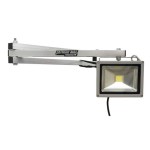Essential Aspects of Driveway Alert Alarm Systems
Driveway alert alarm systems are becoming increasingly popular as a way to enhance home security and convenience. These systems use sensors to detect movement or vehicles in your driveway and send an alert to your phone or other monitoring device. Here are some of the essential aspects of driveway alert alarm systems to consider when choosing one for your home:
## Sensor TypeDriveway alert alarm systems use various types of sensors to detect movement or vehicles. Some of the most common types include:
- Motion Sensors: Detect movement using infrared or microwave technology.
- Passive Infrared (PIR) Sensors: Detect changes in heat and movement.
- Magnetic Sensors: Detect the opening or closing of gates or doors.
- Beam Sensors: Create an invisible beam across the driveway and trigger an alarm when broken.
The range and detection zone of a driveway alert alarm system determine the area it can monitor. Consider the size of your driveway and any obstacles that may interfere with detection when selecting a system. Some systems have adjustable detection zones to customize the coverage area.
## Alert OptionsDriveway alert alarm systems offer different ways to send alerts. Most systems send notifications to your smartphone via an app. Some systems can also integrate with smart home hubs or security systems for centralized monitoring and control.
## Power SourceDriveway alert alarm systems can be powered by batteries, solar energy, or wired to your home's electrical system. Battery-operated systems provide flexibility but require regular battery changes. Solar-powered systems are environmentally friendly but may not be reliable in areas with limited sunlight. Wired systems offer continuous power but require professional installation.
## Additional FeaturesSome driveway alert alarm systems come with additional features, such as:
- Sirens or Chimes: Sound an alarm to deter intruders or alert you to visitors.
- Cameras: Capture images or videos of detected movement, providing visual verification.
- Geofencing: Allow you to receive alerts only when you are not home, preventing false alarms.
- Integration with Security Systems: Connect to your existing security system for comprehensive monitoring.
While some driveway alert alarm systems are designed for DIY installation, it is generally recommended to have them professionally installed. A qualified installer can ensure proper sensor placement, optimal range, and secure wiring for reliable operation.

Heyo Alert Wireless Driveway 4g Dialler

Guardline Nestopia

Wireless Driveway Alert System Ip44

1 2 Mile Emacros Driveway Alarm Wireless Sensor System Alert Weatherproof Security Outdoor Motion Detector

Mier Da 500 Driveway Alarm

Guardline Nestopia

Sabre Driveway Alert Introducing Our Long Range Water Resistant Home Security System

1byone Driveway Alarm Home Security Alert System With 36 Melodies 1 Plug In Re

Solar Motion Sensor Wireless Receiver System 800 Meters Transmission Range 15 Detection

Six Things You Can Do With A Driveway Alert Diycontrols Blog








